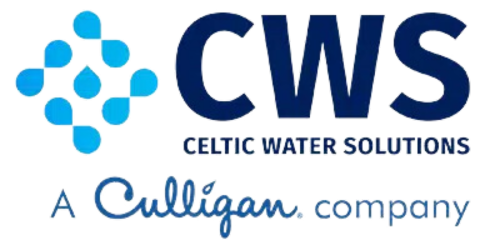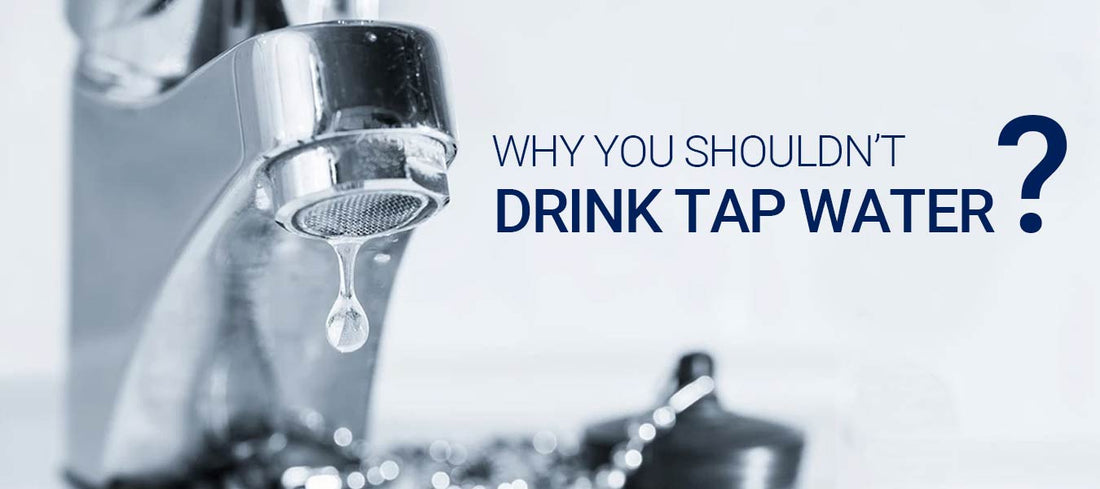1. Chlorine
Water treatment companies add chlorine to drinking water to kill dangerous organisms that can cause severe illness. While the intention is good, problems can arise when too much chlorine is added to your water, as well as chemical by-products that can be created when chlorine reacts with any organic matter. Chlorine imparts a strong chemical taste and smell, which can be unpleasant, particularly to those with sensitive palates. The by-products that result from chlorination of water, such as trihalomethanes, are a much larger concern than the chlorine itself. These by-products don’t break down easily and tend to accumulate in the body faster than the detoxification system can handle. They’ve been linked to cancer, are known to damage the heart, lungs, kidneys, and nervous system, and are lethal to the beneficial bacteria in the intestines that are crucial to immunity and digestion.2. Fluoride
Fluoride can occur naturally and there are maximum levels allowed in mains water, though in some regions fluoride is added to municipal water supplies. Artificial fluoridation of mains water has long been a controversial issue with both advocates and critics. Fluoride is medically proven to reduce tooth decay in children and since tooth decay is statistically one of the most widespread chronic diseases in cities, fluoridation schemes have been in place to add it to mains water for around 60 years. But even today, it’s controversial with critics arguing that high levels of fluoride can lead to dental and skeletal fluorosis. It’s linked to cancer and osteoporosis, can damage the heart, brain and kidneys, and can cause behavioural disorders, birth defects, arthritis, hormone imbalance, and excessive calcification of arteries and joints.3. Heavy Metals
Heavy metals are metallic elements with a relatively high density that are toxic or even poisonous when ingested. Your tap water could be contaminated with heavy metals such as mercury, cadmium, lead, chromium, copper, aluminium, and arsenic. If you get metal poisoning, you could experience nerve damage, diarrhoea, memory loss, or muscle cramps. Thankfully, excessive levels of heavy metals in tap water are quite rare in many places across the globe. However, it does sometimes occur, even in relatively developed and rich countries like UK & Ireland. Some old water systems were constructed from lead piping. If you have an old water system, it might have lead pipes that seep small particles of lead into your drinking water. Of course, lead is not the only heavy metal that can show up in tap water. Arsenic is another toxic heavy metal that can occasionally show up in tap water, either through accidental human pollution or its natural presence in some well water. Among other health concerns, excessive arsenic consumption can result in partial paralysis, skin discolouration, and severe digestive issues like persistent vomiting.4. Harmful Bacteria, Viruses & Cysts
In some places around the world, tap water is insufficiently disinfected, leaving the possibility of waterborne illnesses on the table. Depending on the source, bacteria, viruses and parasites can all be present in water before it undergoes any disinfection. One obvious source of these is wildlife and domestic animals living around us. These pathogens are usually present in their droppings – it’s not rocket science how animal droppings get washed into rivers. Couple this with the frequent leaks in water distribution systems and you’ll see how easy it is to fall sick by drinking raw tap water. Utility companies such as Irish Water may issue "Boil Notice" when there is an E. Coli or cryptosporidium scare. It can cause health concerns like nausea, vomiting, diarrhoea, abdominal tenderness, pain, and cramping.5. Herbicides & Pesticides
More often than not, herbicides and pesticides sneak into the water supply, particularly in groundwater of agricultural regions. Pesticides are potentially toxic to humans and can have both acute and chronic health effects, depending on the quantity and how a person is exposed. The health effects of pesticides depend on the type of pesticide. Some, such as organophosphates and carbamates, affect the nervous system. Others may irritate the skin or eyes. Some pesticides may be carcinogens (cancer-causing). Others may affect the hormone or endocrine system in the body.6. Microplastics
People are routinely ingesting plastic through drinking water from their kitchen taps both in Ireland and abroad. A study by Orb Media found 93% of bottled water around the world and 92% of tap water is contaminated with microplastics. Another study by Orb Media found that 94% of tap water in the USA and 72% in Europe contained microplastics.

The big challenge is that microplastics are unregulated and therefore water utilities are not obliged to test for them or include microplastics in water quality reports. Even if the source of the water is mountain springs and lakes there could be microplastics as plastic pollution is everywhere. Microplastic particles can accumulate polychlorinated biphenyls (PCBs), other chemicals that are linked to harmful health effects, including various cancers, a weakened immune system, reproductive problems and more.
Beware of Bottled Water
Bottled water is not the healthy option many people think it is. In fact, some bottled water is no less contaminated than ordinary tap water. The plastic bottle it comes in makes matters worse by leaching chemicals into the water, especially if it’s been exposed to heat. Furthermore, the enormous quantity of plastic bottles being produced has created significant environmental concerns. Plastic is one of the leading environmental hazards on the planet. Even though plastic is recyclable, sadly 80% of water bottles aren’t recycled. Maybe this has to do with the lack of recycling bins available outside of homes. Not to mention, bottled water is expensive. A single household can spend around €500-€600 every year on bottled water. While there are some quality brands of tap water, it’s best to drink filtered water as often as possible. READ MORE: Bottled Water & Filtered Water ComparedNow you know why you must filter your water!
Many of the toxic chemicals found in drinking water are dangerous in very small quantities. As such, it’s nearly impossible to identify them based on taste, and this increases the need to be sure that your drinking water is properly filtered. Safe drinking water begins with a water filter. The three different water systems you can implement in your home include:
1. Under a sink
This type of filer is placed under a sink and diverts cold water from the pipes to the filter before it reaches the sink faucet. This will make your water safer, tastier, and much healthier.
2. Countertop
These filters sit on top of the countertop and divert incoming water from the sink faucet via a tube into the filter. They’re very easy to install and come with one or more replacement filters. This makes the water healthier and boosts its properties, making it safer to drink.

